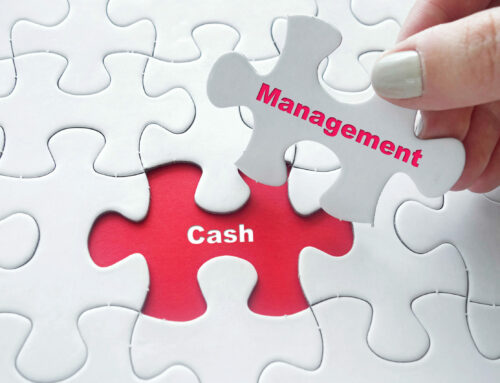Recently, I was asked by a reader to write more on the topic of property acquisition. Since my readers' request is almost always my command, this week I'm dedicating myself to the acquisition process.
Let's start with a trip down memory lane to dispel a preconception, namely that speed is everything when it comes to buying real estate.
In 2009, I had the great fortune of working for a financially strong real estate developer and was allowed to go out and search for land and properties in perhaps the "best buyer's market ever." During this time we once had a case where an owner of several quite exciting properties was on the verge of bankruptcy because he had overstretched himself in his core business. Due to our financial strength we had a very good position in the negotiations and were looking forward to a "bomb deal". Significantly, despite full suitcases of money, we did not reach our goal because the process was simply too far advanced.
Since this incident at the height of the financial crisis, I have not experienced a situation where speed was really the big issue when buying real estate. The main reasons for this are, on the one hand, the low interest rate environment, in which financing is relatively easy to obtain on reasonable terms, and, on the other hand, the professionalization of controlling on the part of real estate owners, which makes potential liquidity bottlenecks visible earlier.
Real estate buyers have a legitimate interest in a thorough technical, legal, financial and possibly also fiscal examination (due diligence), which naturally takes some time and the costs of which often amount to 1-2% of the purchase price. For this reason, they often demand exclusivity for the due diligence phase.
On the other hand, real estate sellers naturally do not want to waste weeks of time with a prospective buyer who cannot afford the property at the end of the day.
The solution approach lies m.E. in a professional preparation just like in a trustworthy appearance in the discussions.
Preparation on the buyer's side includes a short presentation from which his financial potency can be estimated. At the company level, this can include relevant figures from the last balance sheet, for example; for private individuals, a serious, honestly presented story is sometimes sufficient, in which extraordinary possibilities should be actively discussed. If a couple in their late 20's is looking at a penthouse or villa for 2 million it should at least hint at where the money is coming from. On the other hand, a 50-year-old doctor couple will be believed to be able to afford an apartment around EUR 700,000 without addressing the topic of financing separately. The same applies on a company level.
The preparation of a due diligence list appropriate to the complexity of the transaction is also part of professional preparation.
In the conversation itself, one should first find out together why the property should be worth more to the buyer than to the seller. As a rule, the following aspects come into consideration:
- Better rezoning chances for the buyer
- Better construction management (prices and risks) of the buyer
- Higher marketing competence / alternative assessment of the development potential on the buyer's side
- More favorable financing options / lower return requirement on the buyer's side
If you play your cards fairly close to your chest, this can accelerate the further process and also build up a lot of trust.
Once this phase is over, it is a matter of agreeing a fair purchase price assuming that no material findings are found during the DD.
Last but not least, a reasonable DD roadmap needs to be agreed upon. This is where the buyer's need for sufficient time for inspection and arranging financing on the one hand, and the seller's need not to deprive himself of any alternative disposition options on the other, come together.
From my practice I know that 6 weeks of exclusivity in return for clear open communication of the (interim) results is usually not a problem. Typical DD roadmaps look like this:
- Handover of the DD checklist in the appointment / dispatch by e-mail the next day at the latest
- Transmission of the documents approx. 1 week after the interview (individual documents can also be submitted later)
- Intermediate feedback after 2-4 weeks - during this feedback the buyer should present his set actions and first intermediate results
- Completion of the due diligence after another 2-4 weeks
This may seem long for the seller, but serious sellers also know that a clean DD takes time.
If a seller does not agree to such a plan, caution is advisable in my opinion. Either he has something to hide or he wants to put the buyer under pressure. And serious sellers simply should not do this.






Dear immortals, I need some wow gold inspiration to create.
I LOVE YOUR WORK WELL DONE
Dear gregor-pfeiffer.at administrator, You always provide useful information.
To the gregor-pfeiffer.at webmaster, Your posts are always well researched and well written.
free youtube vpn free unlimited vpn for mac vpn reviews https://rsvpnorthvalley.com/
free youtube vpn free unlimited vpn for mac vpn reviews best vpn provider
vpn chrome extension best vpn service for mac vpn windows free https://free-vpn-proxy.com/
vpn chrome extension best vpn service for mac vpn windows free best vpn apps
best vpn service of 2022 setupvpn – lifetime free vpn nord vpn reviews https://ippowervpn.net/
best vpn service of 2022 setupvpn – lifetime free vpn nord vpn reviews private vpn
free vpn ps4 free vpn account tunnelbear vpn https://superfreevpn.net/
free vpn ps4 free vpn account tunnelbear vpn norton vpn review
ipvanish vpn free best free vpn for ios best free vpn for netflix https://imfreevpn.net/
ipvanish vpn free best free vpn for ios best free vpn for netflix buy vpn with paypal
free vpn ps4 best vpn for ios vpn download free https://freevpnconnection.com/
free vpn ps4 best vpn for ios vpn download free best free vpn app for windows
secure vpn service best vpn service lifehacker hoxx vpn https://shiva-vpn.com/
secure vpn service best vpn service lifehacker hoxx vpn nord vpn free trial
windscribe free vpn free us vpn vpn for windows free download https://accountingvpn.com/
windscribe free vpn free us vpn vpn for windows free download gaming vpn free
online vpn free cloud vpn vpn best buy https://bordervpn.com/
online vpn free cloud vpn vpn best buy best value vpn
top vpn service providers best vpn for mac best free vpn for dark
web https://govtvpn.com/
top vpn service providers best vpn for mac best free vpn for dark web free unlimited vpn
zenmate vpn free free uk vpn vpn chrome extension https://courtvpn.com/
zenmate vpn free free uk vpn vpn chrome extension best free windows vpn
Hello gregor-pfeiffer.at administrator, You always provide useful tips and best practices.
Hi gregor-pfeiffer.at administrator, Thanks for the well-researched and well-written post!
Hi gregor-pfeiffer.at webmaster, Your posts are always well-supported by facts and figures.
write custom essays urgent essay help cheap essays for sale https://cheap-online-essay.com/
write custom essays urgent essay help cheap essays for sale help me write a narrative essay
buy an essay online cheap help writing a compare and contrast essay custom essay writing sites https://servicessay.com/
buy an essay online cheap help writing a compare and contrast essay
custom essay writing sites customer service essays
To the gregor-pfeiffer.at webmaster, Your posts are always well-written and easy to understand.
Hello gregor-pfeiffer.at owner, Thanks for the detailed post!
Dear gregor-pfeiffer.at webmaster, Your posts are always a great source of knowledge.
Hello gregor-pfeiffer.at owner, Thanks for the well-structured and well-presented post!
To the gregor-pfeiffer.at owner, You always provide clear explanations and step-by-step instructions.
Hi gregor-pfeiffer.at owner, Your posts are always well-supported and evidence-based.
Hello gregor-pfeiffer.at owner, Your posts are always well-written and easy to understand.
Hi gregor-pfeiffer.at owner, Your posts are always well-supported by research and data.
Hi gregor-pfeiffer.at owner, You always provide great resources and references.
Hi gregor-pfeiffer.at owner, Your posts are always well researched.
To the gregor-pfeiffer.at administrator, You always provide great resources and references.
Hello gregor-pfeiffer.at owner, You always provide great insights.
Hi gregor-pfeiffer.at webmaster, You always provide helpful diagrams and illustrations.
To the gregor-pfeiffer.at administrator, You always provide helpful information.
Hi gregor-pfeiffer.at admin, Your posts are always insightful and valuable.
Hello gregor-pfeiffer.at admin, Your posts are always well-written and easy to understand.
Hi gregor-pfeiffer.at owner, Your posts are always thought-provoking and inspiring.
christiandatingforfree europe free chat free date web sites https://onlinedatinghunks.com/
christiandatingforfree europe free chat free date web sites online dating sites for free 100%
Hi gregor-pfeiffer.at admin, You always provide key takeaways and summaries.
interracial dating site single websites for over 40 free local personals https://onlinedatingsurvey.com/
interracial dating site single websites for over 40 free local personals online free dating personals for singles
professional dating sites online payment sites mature nl free https://freewebdating.net/
professional dating sites online payment sites mature nl free free dating sites for men and women
dating near me free free chatting for marriage online dating best
sites free https://allaboutdatingsites.com/
dating near me free free chatting for marriage online dating best sites free mature free and single
Hi gregor-pfeiffer.at administrator, Your posts are always interesting.
Dear gregor-pfeiffer.at owner, Your posts are always well-supported by facts and figures.
Hi gregor-pfeiffer.at webmaster, Thanks for the well-researched and well-written post!
Hello gregor-pfeiffer.at webmaster, Keep up the good work, admin!
coursework bank coursework english literature coursework for nursing https://courseworkdownloads.com/
coursework bank coursework english literature coursework for
nursing qasp coursework
coursework synonym coursework in or on coursework plagiarism
checker https://coursework-expert.com/
coursework noun coursework english language coursework based degrees coursework sample
coursework synonym coursework in or on coursework plagiarism checker coursework college
custom coursework writing creative writing coursework coursework def https://writingacoursework.com/
custom coursework writing creative writing coursework coursework def coursework download
coursework umich coursework examination coursework umich https://buycoursework.org/
coursework umich coursework examination coursework umich coursework hours
cpa coursework coursework quotes coursework in a sentence https://courseworkinfotest.com/
cpa coursework coursework quotes coursework in a sentence coursework advantages and disadvantages
Hello gregor-pfeiffer.at webmaster, Your posts are always insightful and valuable.
coursework and research difference coursework moderation coursework writing uk https://courseworkninja.com/
coursework and research difference coursework moderation coursework writing uk courseworkninja.com
Hi gregor-pfeiffer.at Owner, exact right here: Link Text